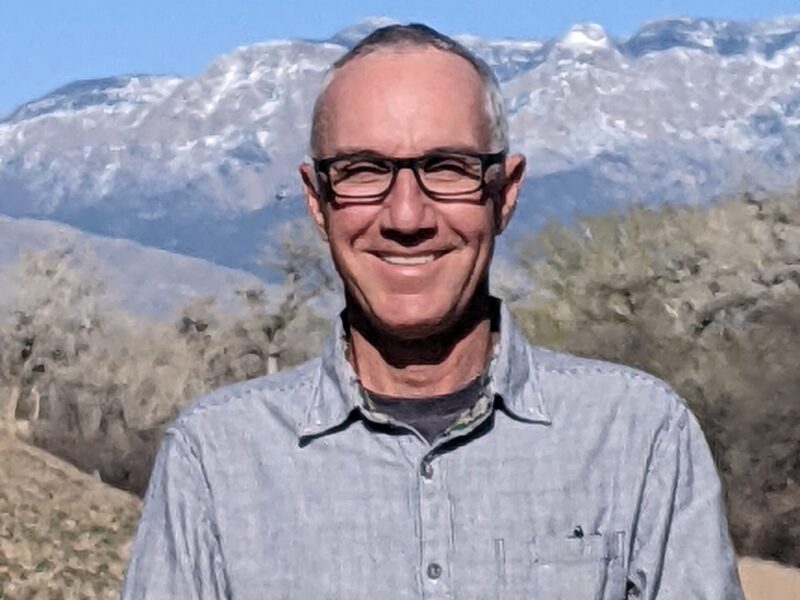[ad_1]
Many people are first drawn to cannabis out of necessity, searching for medicine or a miracle. When asked what inspired him to enter the cannabis industry, Mountaintop Extracts CEO Eric Merryman hesitated. “Inspired?” He lingered over the word before explaining his cannabis journey began with Rick Simpson Oil (RSO) and a diagnosis no one saw coming.
His mother was diagnosed with late-stage fallopian tube cancer in 2012. One of Merryman’s sons suggested he research cannabis as a potential treatment for his mother’s illness. Before long, she was using RSO regularly and the family was hopeful about her prognosis.
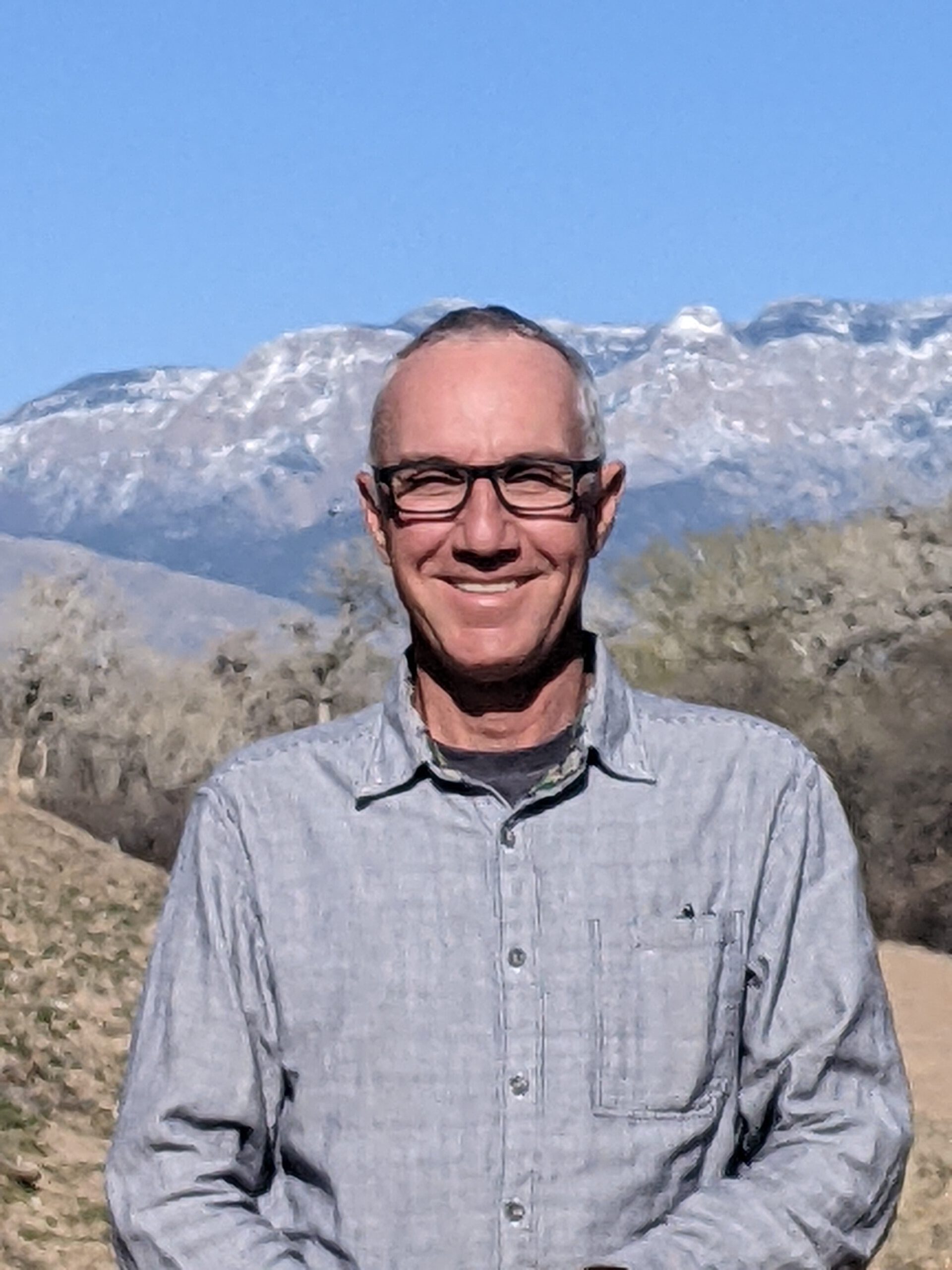
Merryman quickly realized he wanted more control over the products his mom was ingesting. Any toxins in the cannabis or residual solvents left during the extraction process could make her health worse. He obtained a license to grow cannabis as a caregiver and dove headfirst into cultivating.
Then, in 2015, an explosion at a butane hash oil processing center pushed Merryman and his wife Jennifer into action.
The duo started working with the state of New Mexico and the gas division to create safety standards for light hydrocarbon extraction. Before long, Mountaintop Extracts was up and running, providing clean, safe medical products to patients across the state.
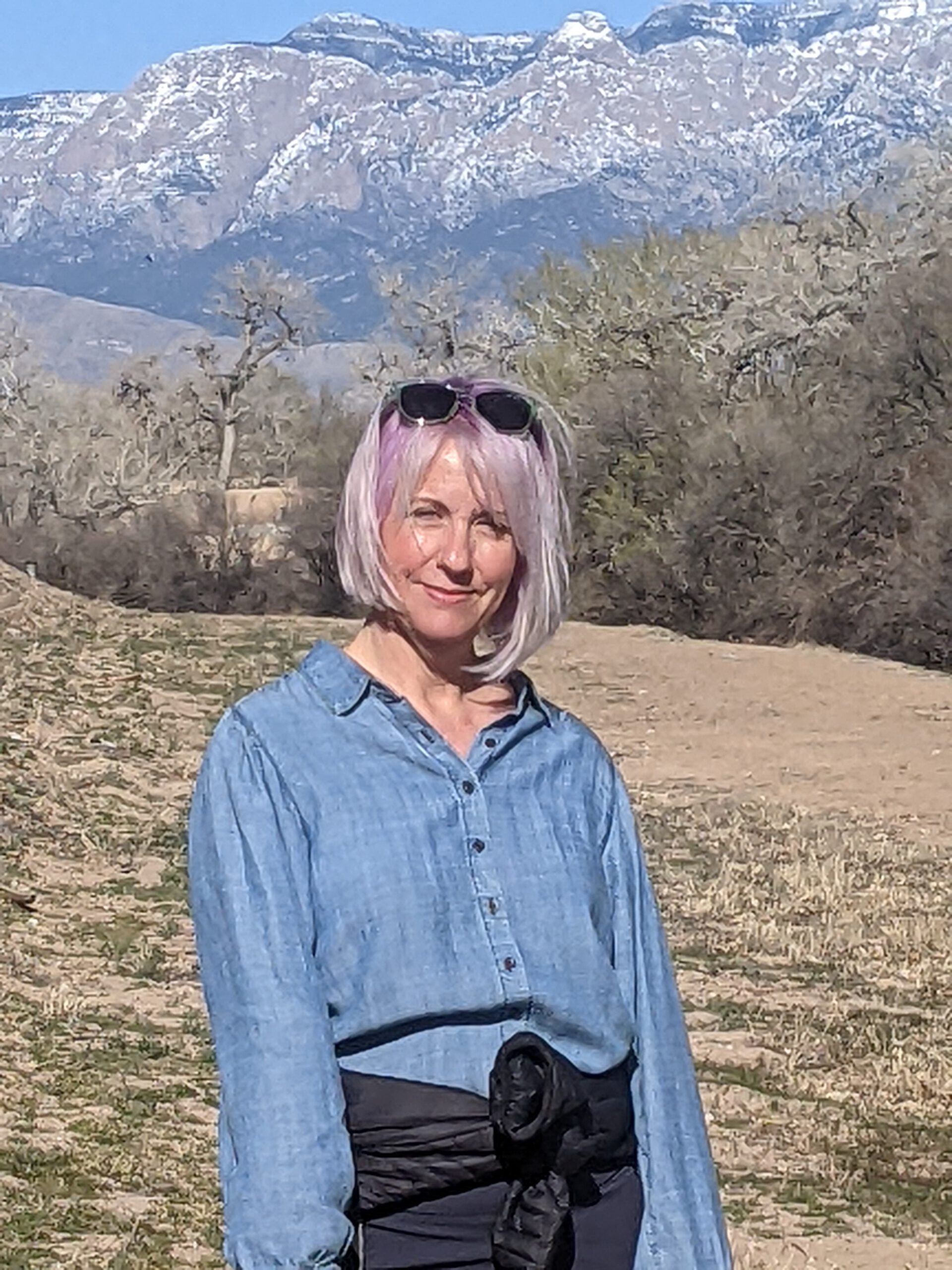
As New Mexico enters its second year of legal adult-use consumption, Mountaintop Extracts serves 70-80% of the state’s dispensaries.
Cannabis & Tech Today sat down with the husband-and-wife founders via teleconference to discuss their journey and the power of innovation.
Cannabis & Tech Today: When did you start making RSO for your mother?
Eric Merryman: I became my mom’s licensed caregiver and then began to cultivate that medicine for her, and then produce the final product as well. So then I knew exactly what was going into the plant and what was in the final product.
We started seeing really good results from the blood work, for about four months. It brought on a bit of hope and relief. And then about month five, that started taking a downturn, towards the negative.
So at that point, it became a maintenance medicine because she did ultimately go the chemotherapy route. It aided in her being able to work through that process in a kinder way.

EM: The way I saw it, there was a high level of uncertainty in the integrity or quality of the plant material being used for creating derived or infused products. One of the reasons is that cannabis is a natural remediator for the soil.
Depending on what’s in your soil, it could be coming up systemically through the plant. And then also there can be issues that come up in cultivation, whether it be with mildew, mold, or insects people will treat, that then potentially come through in the final product being placed on the market.
So in my research of the different technologies for processing this oil, I felt I had much more room to address those issues with the light hydrocarbon extraction, as well as preserving the integrity of that plant from harvest to final product.
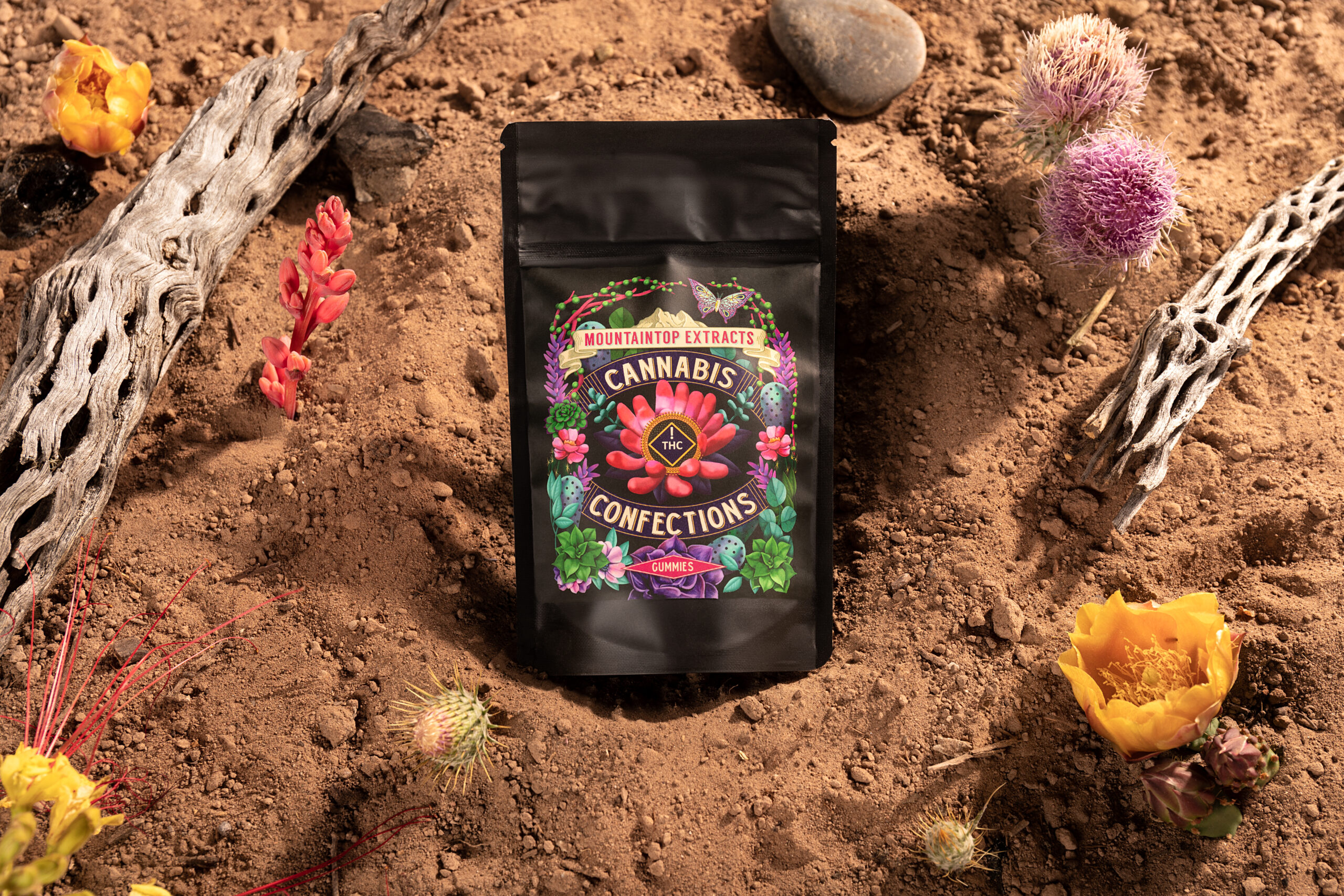
Coming from the building industry, my toolbox was important to me. I felt that I could take that foundational toolbox and even add to it from my past experience in biofuel production, which has a lot of similarities. So it seemed like a really synergistic approach for me.
C&T Today: What inspired the development of your latest product, Oasis, Powered by Solcend?
Jennifer Merrymen: We looked at a need in the community, especially the medical community where you could have a single dose serving with the ability to put it on anything you want.
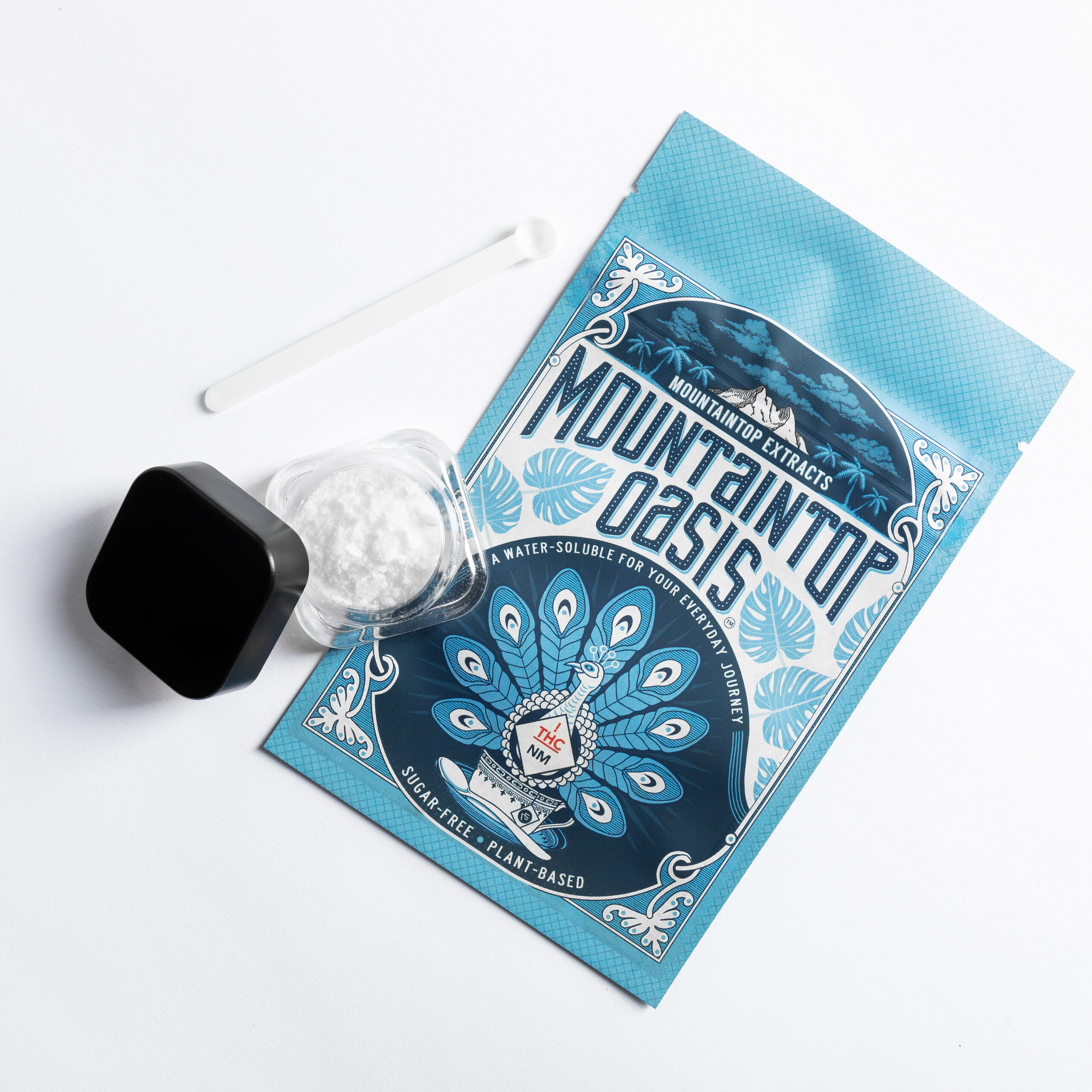
If you had a dietary restriction or anything like that, it was just a pourable, non-sugar medicine. It is a plant-based, water-soluble, full-spectrum powder. We were issued a patent on that in Canada and it’s patent-pending here in the U.S.
EM: It’s been in the medical market for about a year, but we just had our adult use launch on 4/20 and had a tremendous response there. We’re looking to license that in other states and potentially other countries as well.
C&T Today: What are your most successful retail partners doing that sets them apart?
EM: It’s truly those budtenders who have a relationship with the Mountaintop product. Not only from an experiential point of view, but we spend a lot of time and money on education.
We have a whole educational package and do frequent events at these dispensaries to support the Mountaintop message.
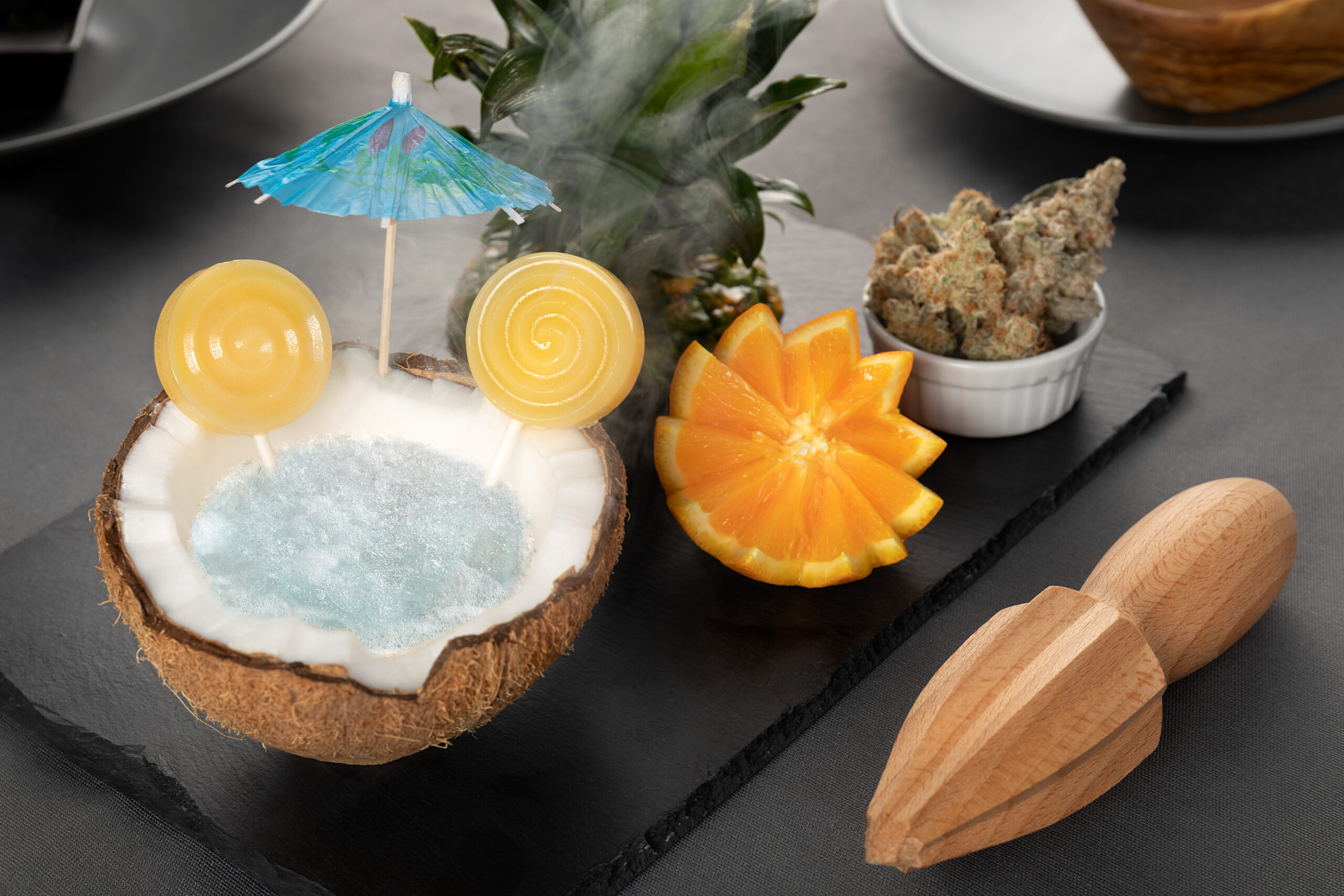
In one of our smaller collaborations, at a dispensary level, we do a full product line for them. You can go in there and get the flower, the concentrate, the vape, the gummies, and our new water-soluble Oasis product from the same strain.
C&T Today: What could New Mexico’s regulators be doing to help educate citizens about cannabis products?
JM: What we’ll look for our state to be pushing out in terms of education is kind of standardizing the language that’s put on packaging.
There is a difference between a distillate derived as full spectrum and a true full spectrum in terms of the light hydrocarbon manufacturing process.
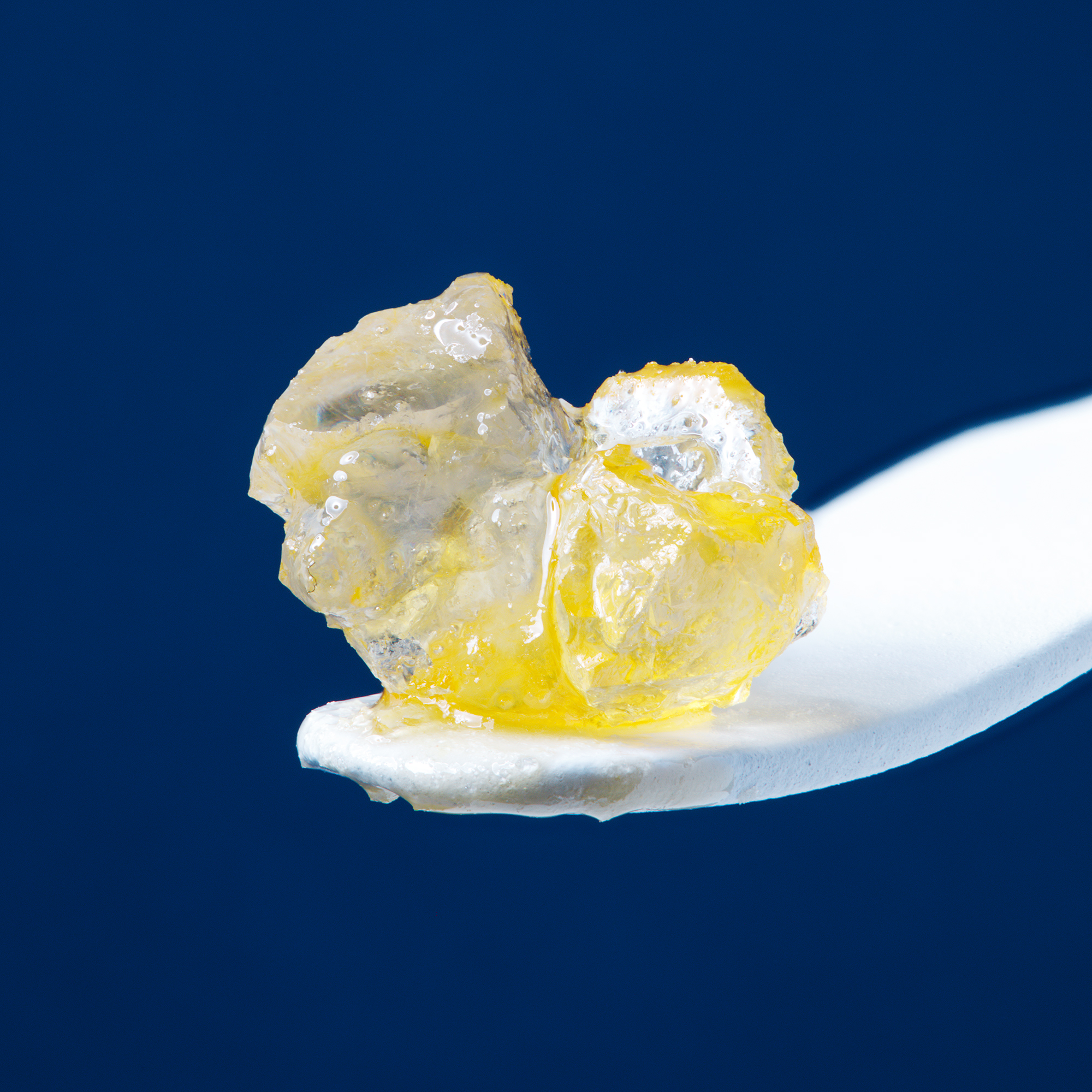
That process matters and the language on the packaging matters in terms of not having confusion in the industry for educating the customer base.
JM: Yes, most definitely. We are trying to create that base level of understanding because you don’t know what you don’t know as a new entrant.
If you just start trying to build up the vocabulary, then the questions start to roll out like, “Wait, why is one so much more expensive or less expensive than another? Is there really a difference?”
I think those are points where it would behoove all industry folks to start to have discussions and standardize.
This article first appeared in Volume 5 Issue 2 of Cannabis & Tech Today. Read the full issue here.

